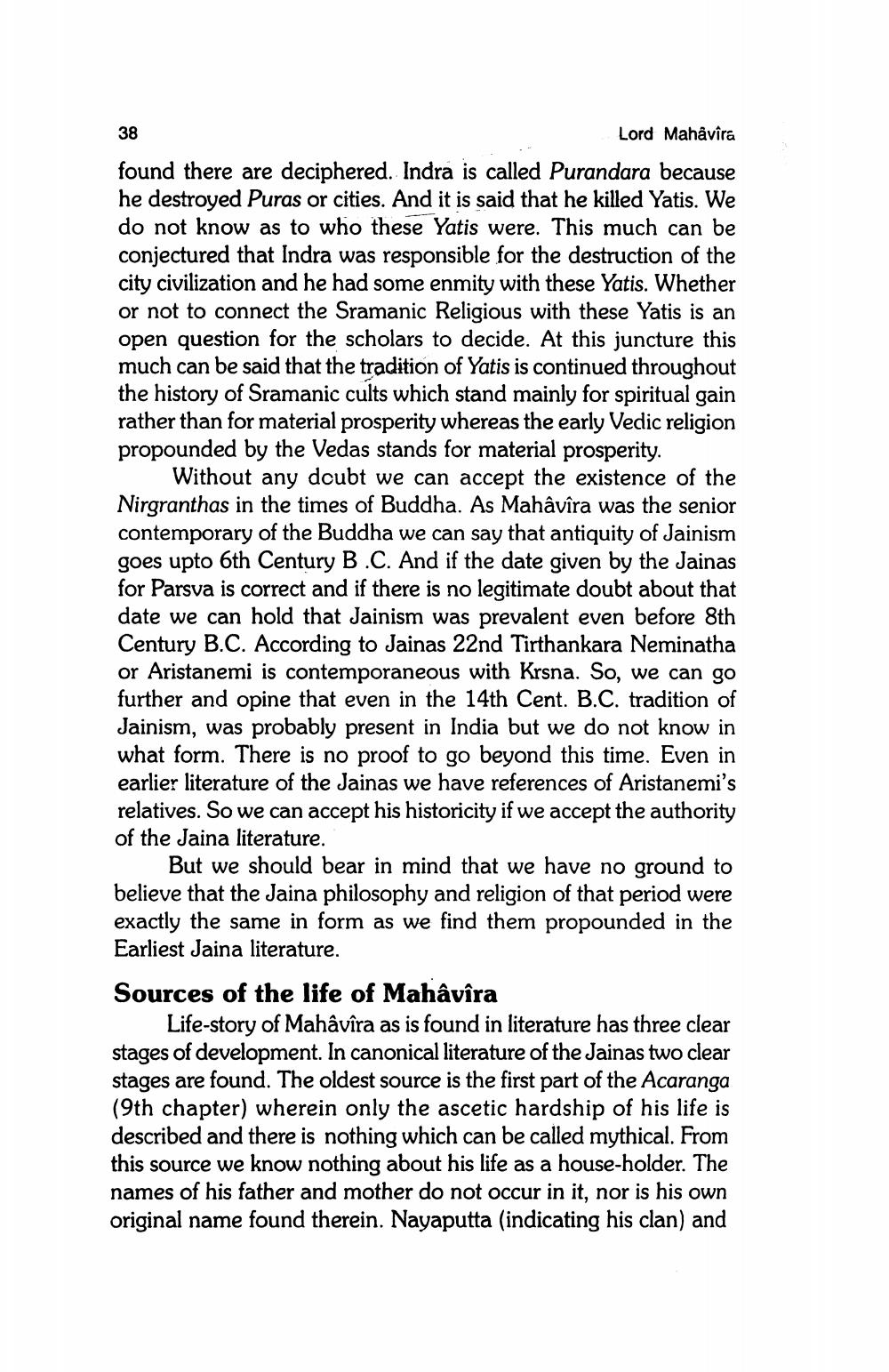________________
Lord Mahâvîra
found there are deciphered. Indra is called Purandara because he destroyed Puras or cities. And it is said that he killed Yatis. We do not know as to who these Yatis were. This much can be conjectured that Indra was responsible for the destruction of the city civilization and he had some enmity with these Yatis. Whether or not to connect the Sramanic Religious with these Yatis is an open question for the scholars to decide. At this juncture this much can be said that the tradition of Yatis is continued throughout the history of Sramanic cults which stand mainly for spiritual gain rather than for material prosperity whereas the early Vedic religion propounded by the Vedas stands for material prosperity.
Without any doubt we can accept the existence of the Nirgranthas in the times of Buddha. As Mahâvîra was the senior contemporary of the Buddha we can say that antiquity of Jainism goes upto 6th Century B .C. And if the date given by the Jainas for Parsva is correct and if there is no legitimate doubt about that date we can hold that Jainism was prevalent even before 8th Century B.C. According to Jainas 22nd Tirthankara Neminatha or Aristanemi is contemporaneous with Krsna. So, we can go further and opine that even in the 14th Cent. B.C. tradition of Jainism, was probably present in India but we do not know in what form. There is no proof to go beyond this time. Even in earlier literature of the Jainas we have references of Aristanemi's relatives. So we can accept his historicity if we accept the authority of the Jaina literature.
38
But we should bear in mind that we have no ground to believe that the Jaina philosophy and religion of that period were exactly the same in form as we find them propounded in the Earliest Jaina literature.
Sources of the life of Mahâvîra
Life-story of Mahâvîra as is found in literature has three clear stages of development. In canonical literature of the Jainas two clear stages are found. The oldest source is the first part of the Acaranga (9th chapter) wherein only the ascetic hardship of his life is described and there is nothing which can be called mythical. From this source we know nothing about his life as a house-holder. The names of his father and mother do not occur in it, nor is his own original name found therein. Nayaputta (indicating his clan) and




